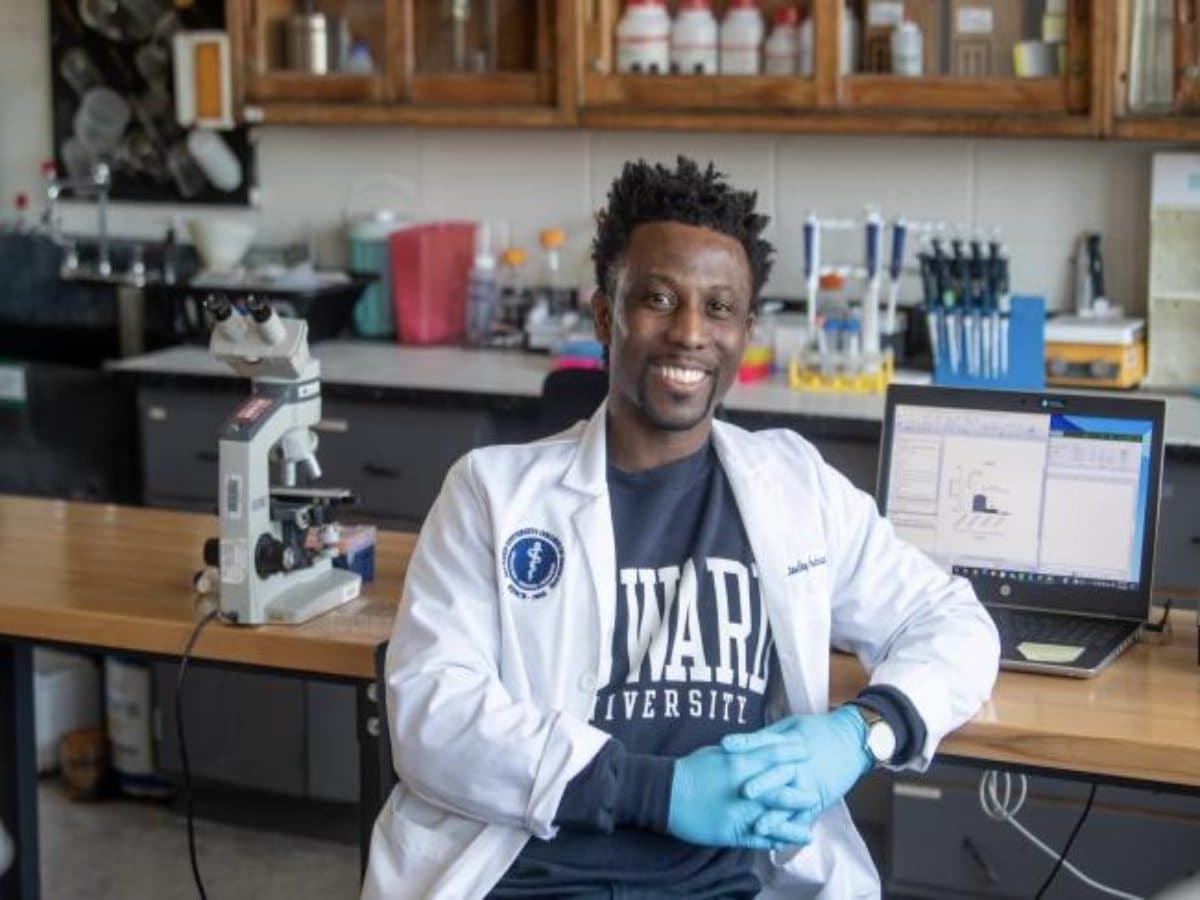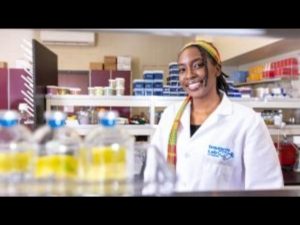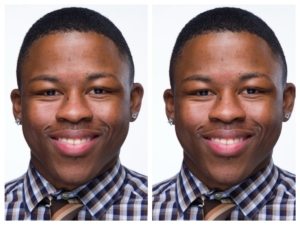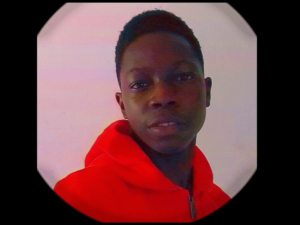Dr. Stanley Andrisse, a tenured professor at Howard University College of Medicine, is a living example of how hope and higher education can totally change someone’s life. He went from a maximum-security prison to tenured faculty at the only R1-designated HBCU in the U.S.
Andrisse told The Dig, “My story represents both possibility and responsibility, and it’s the culmination of years of faith, mentorship, and resilience. But it’s bigger than me. It’s proof that redemption is real — that someone who was once written off as a ‘career criminal’ can stand in front of classrooms, lead research, and shape the next generation of scientists. To my knowledge, I’m the first formerly incarcerated Black man in U.S. history to earn tenure at a medical school.”
Growing up in Ferguson, Missouri, he was labeled a “career criminal” before the age of 21. These early challenges, he noted, profoundly shaped his approach as an educator and mentor, instilling in him “a deep sense of empathy and urgency.” He explained that he understands “what it feels like to be dismissed, underestimated, and denied opportunity.”
He added, “As a mentor, I try to be the voice I needed back then. I try to be someone who believes in potential, not perfection. Many of my students are first-generation or underrepresented in science. I say to them: your background isn’t a barrier; it’s your foundation.”
Losing his father to complications from Type 2 diabetes while incarcerated was the pivotal moment that changed Andrisse’s perspective. His father slipped into a diabetic coma, and Andrisse regretted never having the chance to “say goodbye.”
READ ALSO: Young inmate at Rikers Island prison graduates as high school valedictorian
This loss profoundly affected him, motivating him to read his first scientific article on diabetes. This research sparked a realization. “Even though I was physically caged, my mind was free, roaming inside the human cell, trying to understand disease. That spark became my purpose,” he said. Inspired by his father’s life and struggles, he committed to a different path by pursuing a career in science.
He explained, “Education gave me access—access to rebuild, to contribute, and to redefine myself. Near the end of my sentence, I applied to six graduate schools. Five rejected me outright. The one that accepted me, Saint Louis University, did so because a mentor vouched for me. That one ‘yes’ changed everything. I earned my Ph.D. in physiology and an MBA in finance, finishing in four years at the top of my class. Education didn’t just change my circumstances; it transformed my sense of self-worth.”
He said education “humanized” him again, helping him see himself not as a number or a case file, but as a thinker, a scientist, and a contributor. “It’s what I now try to pass on through my teaching and through From Prison Cells to Ph.D. (P2P), a nonprofit that I co-founded—showing others that redemption is not abstract. It’s something you can live, build, and share.”
Upon his release, there was a significant lack of established paths for individuals with his background to pursue higher education.
Recognizing that he faced numerous barriers, he established “From Prison Cells to Ph.D.” (P2P) to ensure others would not have to navigate these obstacles alone. Since its founding, P2P has supported over a thousand scholars nationwide who have been impacted by the justice system, with the straightforward aim of guiding people from conviction to contribution.
Andrisse contended that most educational institutions view a criminal record as a permanent indicator of character, rather than a transient reflection of past circumstances.
Their focus remains on a person’s history, not their potential for change, he said. However, successfully overcoming incarceration requires the very qualities academia claims to value—resilience, grit, and focus, said Andrisse. He stressed that “second chances are not charity. They are smart investments in human potential.”
READ ALSO: 7 inmates become first graduates of Yale’s prison education program
The professor believes that while “accountability matters,” so does “access,” arguing that “You can’t rebuild what you’re never allowed to touch.” He accepts full responsibility for his past, stating, “I don’t excuse my past. I own it.”
However, he believes redemption is not about “erasing mistakes” but “learning from them and using that experience to make a difference.” He challenges the focus on past errors, suggesting the core question for those who view incarceration as a permanent mark of character should shift from “What did you do?” to “What are you doing now?”
When asked how his two worlds — scientific research and criminal justice reform—intersect in his work today, Andrisse answered, “They intersect at the point of healing. My lab studies the molecular mechanisms of disease, especially diabetes, while my advocacy work tackles the social mechanisms of inequality.”
He continued, “Both are about restoration—of the body and of opportunity. My lived experience makes me a more compassionate scientist, a more grounded educator, and a more relentless advocate. I’m living proof that science and justice can inform one another, that data and dignity can coexist.”
READ ALSO: Inmate becomes first woman to graduate from jail’s CDL program to become a truck driver










